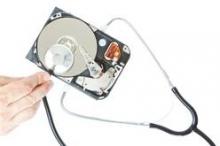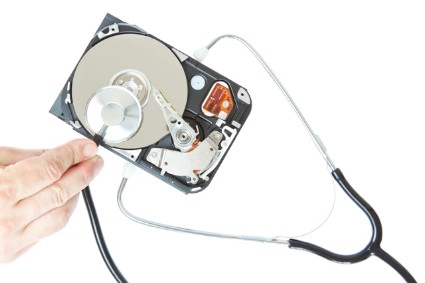User login
I attended a grand rounds recently on a nonacademic topic: improving work flows with electronic medical records (EMR). It was standing room only, a unique phenomenon. Clinicians of all shapes and sizes were in attendance to listen to one of their colleagues provide "useful suggestions" about navigating a somewhat cumbersome and nonintuitive EMR system.
In this "How To" session, we learned about segregating physician notes from other encounters; methods to transpose a comprehensive review of systems from one note to the next; how to filter cardiac test results from all other test data; and more.
The speaker was selected because of his recognized facility with and apparent mastery over the EMR; he knew the shortcuts and every aspect of the system’s functionality.
Herein lies a new definition of the "triple threat": a good clinician, teacher, and EMR navigator.
But is this last skill truly a preferred one? Should we start to select medical students and residents on the basis of computer skills rather than GPA, MCAT, personal history, board scores, or personality? Maybe we should add an EMR challenge to the interview process? After all, successful navigation of EMR seems to be a new metric. Every time I log in, I am provided inane scores on a 0 to 100 scale based on promptness of completing notes, adding new diagnoses, etc. I suspect that the grand rounds speaker scores 100. I do not but take some solace in the fact that I’m nicely and consistently situated near 85. Adequate and acceptable, I hope, until my pay is somehow tied to my EMR "performance."
What does any of this mean to the patient? Is our grand round speaker able to appreciate jugular venous distention, an S3, a precordial knock? Is he listening to the patient? Is he empathic?
All I know is that the next time I click on the imaging tab and see results for a foot x-ray instead of a cardiac echo, it will be clear that I missed something vital during the presentation. Time to deduct some of my Continuing Nonmedical Education credits!
Dr. Hauptman is professor of internal medicine and assistant dean of clinical-translational research at Saint Louis University and director of heart failure at Saint Louis University Hospital. He is an associate editor for Circulation: Heart Failure and blogs while staring out his office window at the Arch.
I attended a grand rounds recently on a nonacademic topic: improving work flows with electronic medical records (EMR). It was standing room only, a unique phenomenon. Clinicians of all shapes and sizes were in attendance to listen to one of their colleagues provide "useful suggestions" about navigating a somewhat cumbersome and nonintuitive EMR system.
In this "How To" session, we learned about segregating physician notes from other encounters; methods to transpose a comprehensive review of systems from one note to the next; how to filter cardiac test results from all other test data; and more.
The speaker was selected because of his recognized facility with and apparent mastery over the EMR; he knew the shortcuts and every aspect of the system’s functionality.
Herein lies a new definition of the "triple threat": a good clinician, teacher, and EMR navigator.
But is this last skill truly a preferred one? Should we start to select medical students and residents on the basis of computer skills rather than GPA, MCAT, personal history, board scores, or personality? Maybe we should add an EMR challenge to the interview process? After all, successful navigation of EMR seems to be a new metric. Every time I log in, I am provided inane scores on a 0 to 100 scale based on promptness of completing notes, adding new diagnoses, etc. I suspect that the grand rounds speaker scores 100. I do not but take some solace in the fact that I’m nicely and consistently situated near 85. Adequate and acceptable, I hope, until my pay is somehow tied to my EMR "performance."
What does any of this mean to the patient? Is our grand round speaker able to appreciate jugular venous distention, an S3, a precordial knock? Is he listening to the patient? Is he empathic?
All I know is that the next time I click on the imaging tab and see results for a foot x-ray instead of a cardiac echo, it will be clear that I missed something vital during the presentation. Time to deduct some of my Continuing Nonmedical Education credits!
Dr. Hauptman is professor of internal medicine and assistant dean of clinical-translational research at Saint Louis University and director of heart failure at Saint Louis University Hospital. He is an associate editor for Circulation: Heart Failure and blogs while staring out his office window at the Arch.
I attended a grand rounds recently on a nonacademic topic: improving work flows with electronic medical records (EMR). It was standing room only, a unique phenomenon. Clinicians of all shapes and sizes were in attendance to listen to one of their colleagues provide "useful suggestions" about navigating a somewhat cumbersome and nonintuitive EMR system.
In this "How To" session, we learned about segregating physician notes from other encounters; methods to transpose a comprehensive review of systems from one note to the next; how to filter cardiac test results from all other test data; and more.
The speaker was selected because of his recognized facility with and apparent mastery over the EMR; he knew the shortcuts and every aspect of the system’s functionality.
Herein lies a new definition of the "triple threat": a good clinician, teacher, and EMR navigator.
But is this last skill truly a preferred one? Should we start to select medical students and residents on the basis of computer skills rather than GPA, MCAT, personal history, board scores, or personality? Maybe we should add an EMR challenge to the interview process? After all, successful navigation of EMR seems to be a new metric. Every time I log in, I am provided inane scores on a 0 to 100 scale based on promptness of completing notes, adding new diagnoses, etc. I suspect that the grand rounds speaker scores 100. I do not but take some solace in the fact that I’m nicely and consistently situated near 85. Adequate and acceptable, I hope, until my pay is somehow tied to my EMR "performance."
What does any of this mean to the patient? Is our grand round speaker able to appreciate jugular venous distention, an S3, a precordial knock? Is he listening to the patient? Is he empathic?
All I know is that the next time I click on the imaging tab and see results for a foot x-ray instead of a cardiac echo, it will be clear that I missed something vital during the presentation. Time to deduct some of my Continuing Nonmedical Education credits!
Dr. Hauptman is professor of internal medicine and assistant dean of clinical-translational research at Saint Louis University and director of heart failure at Saint Louis University Hospital. He is an associate editor for Circulation: Heart Failure and blogs while staring out his office window at the Arch.

